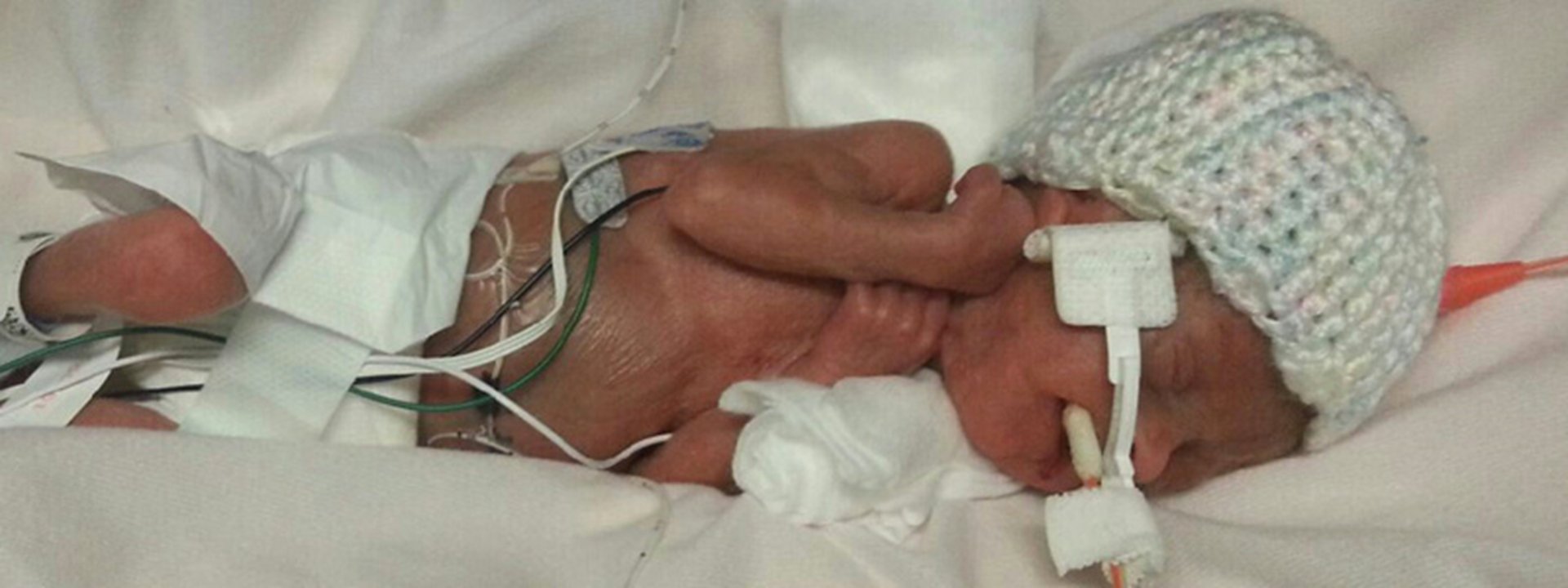Preemies, Micropreemies and Small Babies

Premature infants, known as preemies and micropreemies, come into the world earlier than full-term babies. Small babies can be preterm, and in some cases, full-term with very low birth weight. These babies often have many special needs that make their care different from that of full-term infants, making our NICU and our dedicated small baby unit the right place for their care. Depending on size, weight, length of gestation, and in some cases, cause of premature birth, some babies will only require a short stay, while others may be in the NICU for several months. In addition, some babies won't have any challenges as a result of their premature birth or small size, while others may need ongoing medical and/or developmental care for a short-term or throughout their lives.
Early arrival?
When your baby arrives sooner than planned, you no doubt have lots of concerns and questions. Our Guide for Parents of Preemies has helpful information on everything from time in the NICU to bringing your baby home, and more.
What is a preemie?
Prematurity occurs when a pregnancy lasts less than 37 weeks; full-term infants are born 37 to 42 weeks after the mother's last menstrual period (LMP).
What is a micropreemie?
A baby that is born before the 26th week of pregnancy or weighs less than 28 ounces (700-800 grams) is considered a micropreemie. Due to their very small size and birthweight, and the fact that they are still in very early stages of development, micro-preemies have a considerably higher risk of complications than premature babies.
Our neonatology team has cared for babies born as early as 22 weeks and weighing only 13 ounces or 390 grams.
What causes a premature birth?
In most cases, the cause of preterm delivery is unknown and not within a mother's control. Sometimes it's caused by the mother's health conditions during pregnancy, such as gestational diabetes, hypertension, heart or kidney problems, an infection (particularly involving the amniotic membranes, or genital or urinary tracts), or bleeding due to abnormal positioning of the placenta.
Other times preterm birth can be caused by a mother's lifestyle choices, such as poor nutrition, smoking, illicit drug use, or excessive alcohol consumption during pregnancy.
Also, early and small baby deliveries can be due to a structural abnormality or overstretching of the uterus from carrying more than one fetus at the same time (twins, triplets, or more).
Our dedicated small baby unit
We have always cared for these small babies. Now our centralized, dedicated small baby unit allows even better regulation of developmental care. This includes:
- Faster response times by our medical team
- Lower lighting
- Lower noise levels
- Less guest foot traffic
- Infection control
- Helpful to our parental community
Our all private NICU leads to positive parental involvment which is a huge factor in successful outcomes for small babies. Preterm and small baby deliveries are more common in women younger than 19 or older than 40, and those with a previous preterm delivery. However, any pregnant woman may deliver prematurely and many who do have not have any known risk factors.
If you are at risk for a premature delivery, we invite you to schedule a tour of our NICU.
We're here to help.
If you are interested in scheduling a tour of our NICU, please call 682-885-4375. You can find information on how to refer a patient or other NICU contact information here.